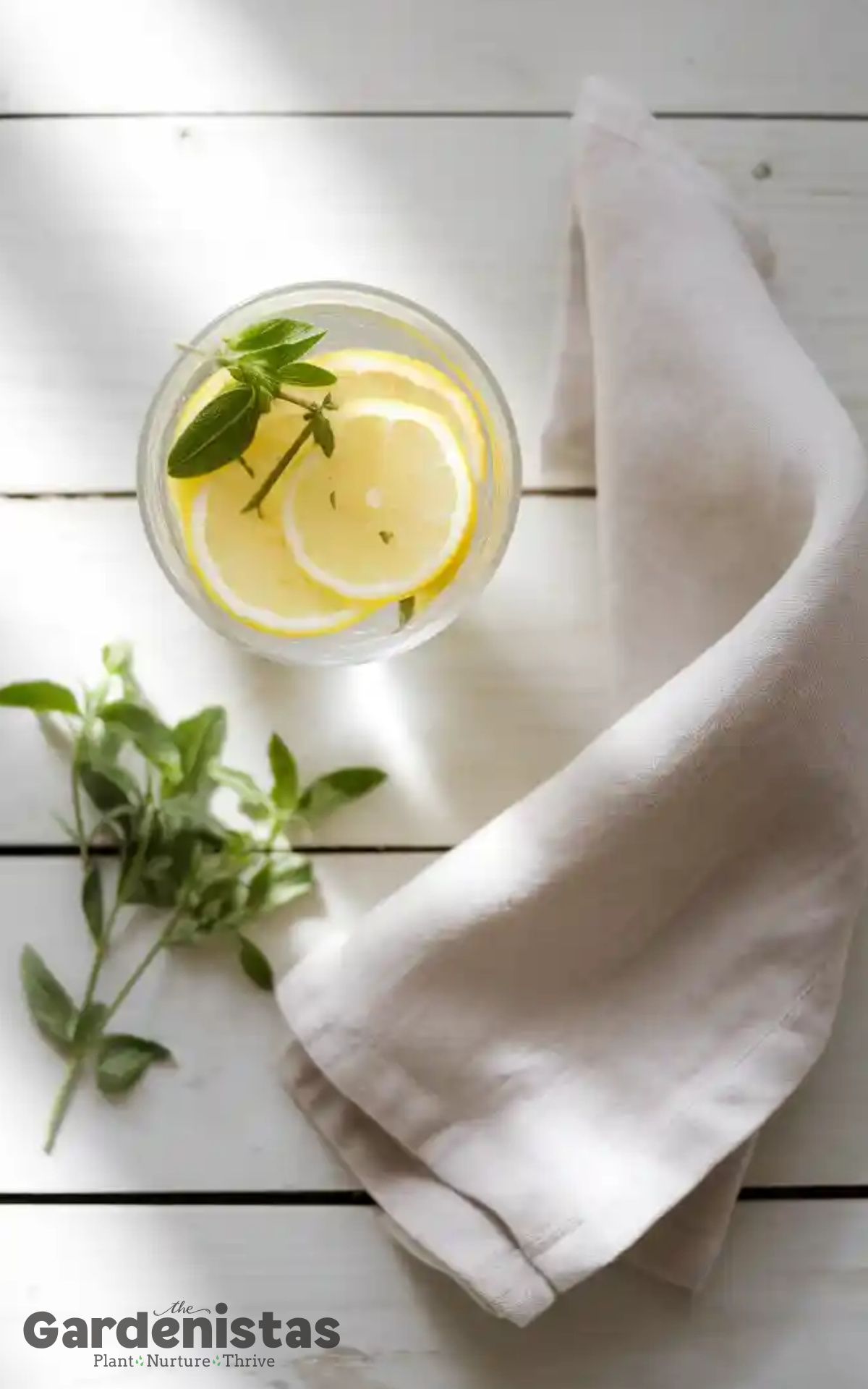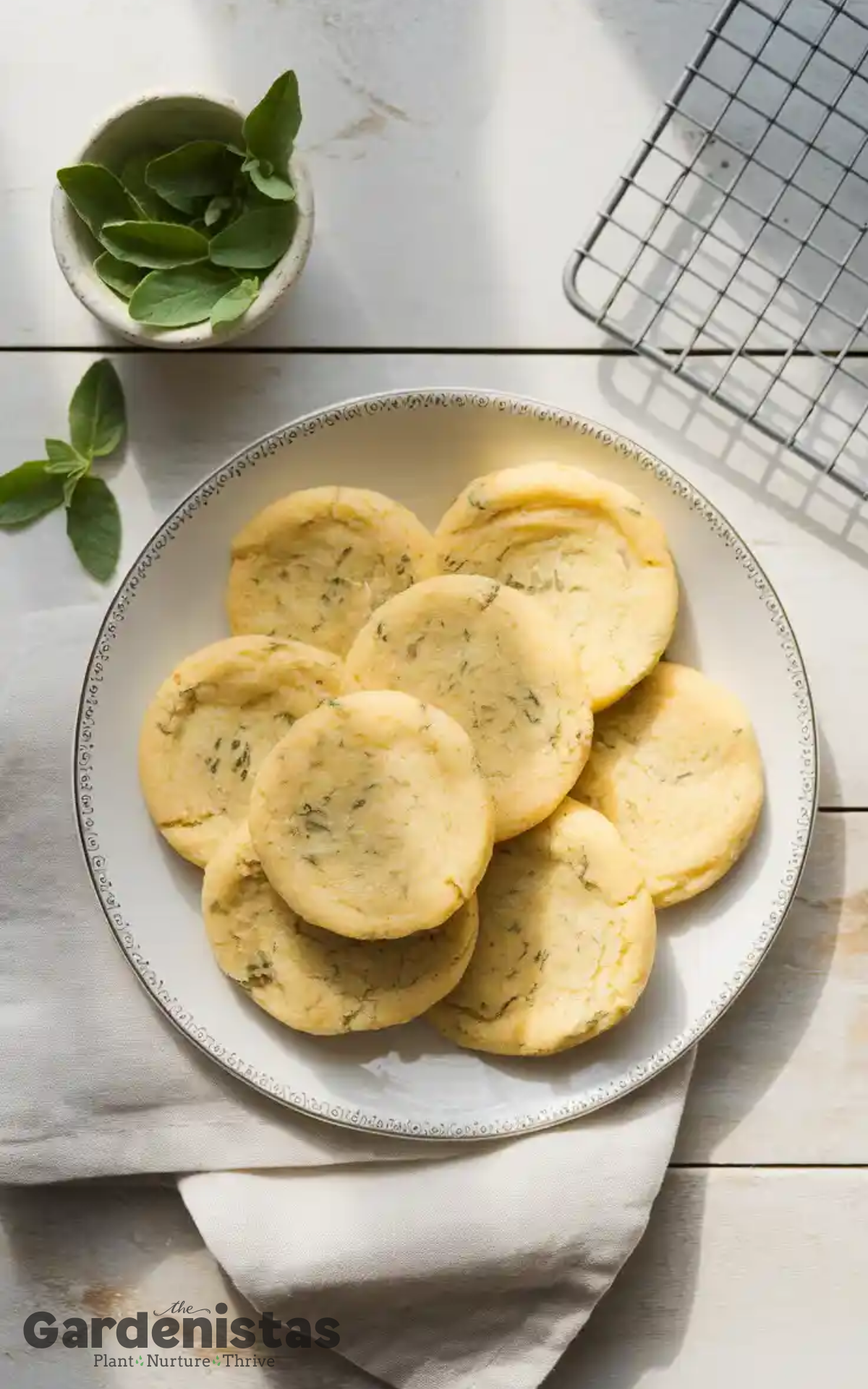Tips, Tricks, Lessons-Learned, and so much more
It all started on a family trip to the mountains. We were tired, hot, and cranky after a long hike, and my youngest spotted a patch of wild green leaves growing by the stream. “Smell this!” he shouted, waving a leafy sprig in my face. It smelled like sunshine and lemonade. Turns out—it was lemon balm.

Funny how some herbs just sneak into your life and stay there. After that trip, I went home, planted some in a pot, and now… well, let’s just say lemon balm shows up in my kitchen more than salt and pepper.
It’s calming. It’s citrusy. And honestly? It makes everything feel a little more special. From tea to cookies to bath time, lemon balm has become our tiny dose of calm and joy.
Let’s Talk Lemon Balm (aka Melissa officinalis)
Lemon balm isn’t fancy or hard to find. But wow, it’s full of surprises.
With its bright lemony smell and soft green leaves, this little herb has been around forever. People have used it for centuries to help with sleep, nerves, and tummy troubles. Plus, it’s just… nice. Like, genuinely feel-good nice.
You can sip it in tea. Toss it into lemonade. Or even rub it on your lips in a homemade balm (more on that later).
Let’s take a look at some super fun, everyday ways to use it.
Lemon Balm Goodness in the Kitchen
Lemon Balm Infused Water
Need to make plain water less boring? Just toss in a handful of lemon balm leaves. It’s crisp, calming, and perfect for hot days. My kids call it “lemonade’s chill cousin.”

Lemon Balm Pesto
One day I ran out of basil. Total kitchen fail. But I had lemon balm and… wow. Blend it with pine nuts, garlic, Parmesan, and olive oil. Spread on toast. Stir into pasta. Or dip carrots into it like I do while pretending to meal prep.
Lemon Balm Lemonade
I love lemonade, but sometimes it needs a glow-up. Add lemon balm while the lemons and honey mix. Let it steep. Chill. Sip. Smile.
Lemon Balm Sorbet
This one blew my mind the first time. Mix lemon balm with lemon juice and sugar syrup. Freeze it. It’s like grown-up snow cones. You’ll keep going back for “just one more spoonful.”
Lemon Balm Tea
Feeling frazzled? This tea is my go-to after a chaotic day (especially when bedtime for the kids turns into a circus). Just steep the leaves and breathe in. Sip slow.
Lemon Balm Cookies
Sounds fancy, right? It’s not. Just chop the leaves and stir them into sugar cookie dough. Boom—instant fresh twist. Bake some with your little ones—they’ll love helping pick the leaves!
Lemon Balm for Self-Care
DIY Lip Salve
I tried this on a whim, and now it lives in every coat pocket I own. Soak lemon balm in olive oil, then mix with beeswax. It’s smooth, smells amazing, and keeps lips super soft.
Facial Steam Moments
Ever boiled water, tossed in herbs, and sat under a towel pretending you’re at a spa? You should. Add lemon balm and let the steam work its magic. Pores love it. So does your soul.
Bath Time Escape
Bad day? Drop a handful of dried lemon balm into the tub. Soak. Close your eyes. Pretend you’re in a cabin by a lake. Trust me—it works.
Aromatherapy Boost
Feeling blah? Add a few drops of lemon balm essential oil to a diffuser or rub it (with a carrier oil!) onto your wrists. It’s a mood lift in a bottle.
Infused Oil Magic
Grab a jar. Stuff with fresh lemon balm. Cover with olive or almond oil. Wait a few weeks. Strain. Boom. Now you’ve got oil that’s great for cooking, skin, and even hair. My husband uses it after shaving. Who knew?
📝 Real Talk: Why Lemon Balm Rocks
- It’s calming. Like a soft blanket for your nerves.
- It smells good. Really good.
- It’s easy to grow—even in a pot on a windowsill.
- It makes everyday stuff feel… better. More thoughtful.
❓Have You Tried It Yet?
If not, you’re totally in the right place. Whether you’re making a lemon balm lemonade to cool off, baking cookies with your kids, or making a homemade lip balm (because store-bought ones always disappear!), lemon balm fits right in.
And hey, don’t worry if the first try doesn’t go perfectly. My first lemon balm sorbet? I forgot the sugar. Major face-puckering moment. But now? I nail it every time (almost).
🌿 In a Nutshell…
Lemon balm is one of those herbs that slips into your life quietly—then suddenly, it’s everywhere. From cookies to baths to tea that saves your sanity, it’s versatile, gentle, and oh-so-refreshing.
So plant a pot. Snip some leaves. Try a recipe. Or just drop a few in your water bottle and take a deep breath.
Because sometimes, the simplest things, like a leafy green from a mountain trail—turn out to be exactly what we need.





